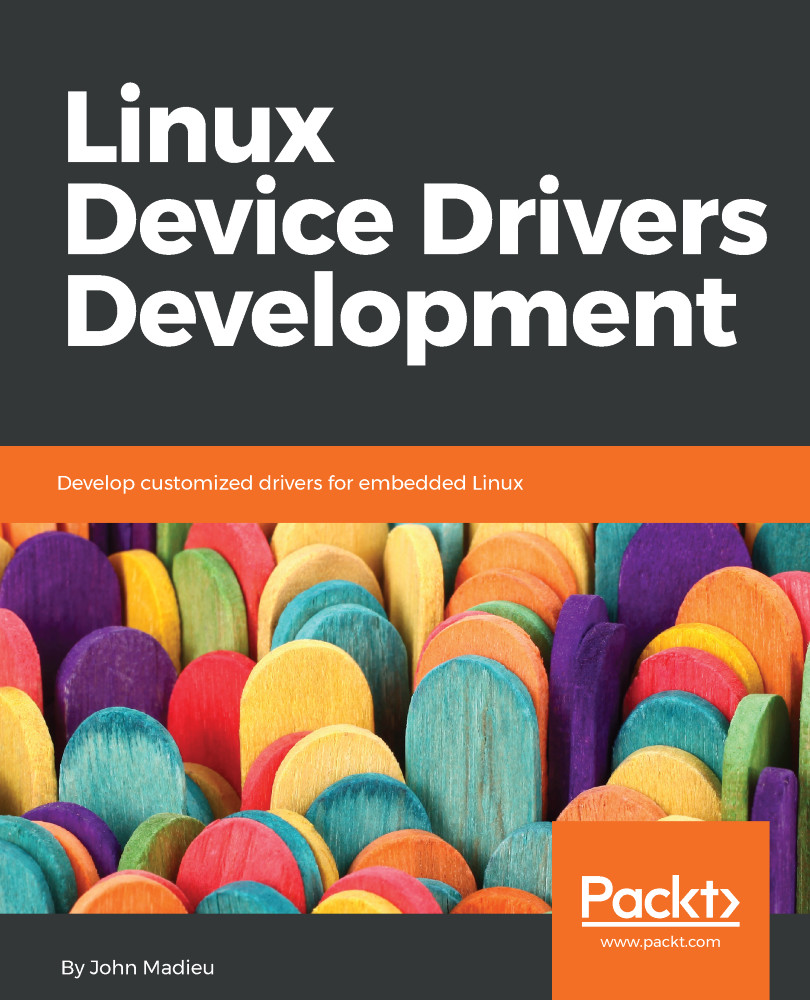The I2C bus, invented by Philips (now NXP) is a two-wire, Serial Data (SDA), Serial Clock (SCL) asynchronous serial bus. It is a multi-master bus, though multi-master mode is not widely used. Both SDA and SCL are open drain/open collector, meaning that each of these can drive its output low, but neither of them can drive its output high without having pull-up resistors. SCL is generated by the master in order to synchronize data transfer (carried by SDA) over the bus. Both slave and master can send data (not at the same time of course), thus making SDA a bidirectional line. That said, the SCL signal is also bidirectional, since the slave can stretch the clock by keeping the SCL line low. The bus is controlled by the master, which in our case is a part of the SoC. This bus is frequently used in embedded systems to connect serial EEPROM, RTC chips...
-
Book Overview & Buying

-
Table Of Contents

Linux Device Drivers Development
By :

Linux Device Drivers Development
By:
Overview of this book
Linux kernel is a complex, portable, modular and widely used piece of software, running on around 80% of servers and embedded systems in more than half of devices throughout the World. Device drivers play a critical role in how well a Linux system performs. As Linux has turned out to be one of the most popular operating systems used, the interest in developing proprietary device drivers is also increasing steadily.
This book will initially help you understand the basics of drivers as well as prepare for the long journey through the Linux Kernel. This book then covers drivers development based on various Linux subsystems such as memory management, PWM, RTC, IIO, IRQ management, and so on. The book also offers a practical approach on direct memory access and network device drivers.
By the end of this book, you will be comfortable with the concept of device driver development and will be in a position to write any device driver from scratch using the latest kernel version (v4.13 at the time of writing this book).
Table of Contents (23 chapters)
Preface
 Free Chapter
Free Chapter
Introduction to Kernel Development
Device Driver Basis
Kernel Facilities and Helper Functions
Character Device Drivers
Platform Device Drivers
The Concept of Device Tree
I2C Client Drivers
SPI Device Drivers
Regmap API – A Register Map Abstraction
IIO Framework
Kernel Memory Management
DMA – Direct Memory Access
The Linux Device Model
Pin Control and GPIO Subsystem
GPIO Controller Drivers – gpio_chip
Advanced IRQ Management
Input Devices Drivers
PWM Drivers
Regulator Framework
Framebuffer Drivers
Network Interface Card Drivers
